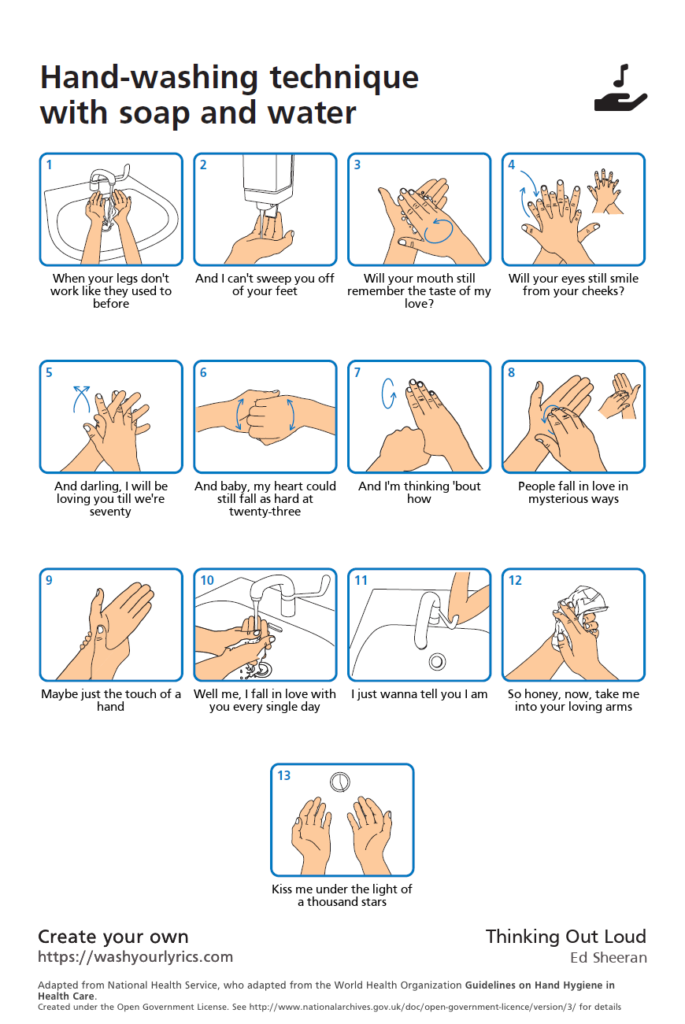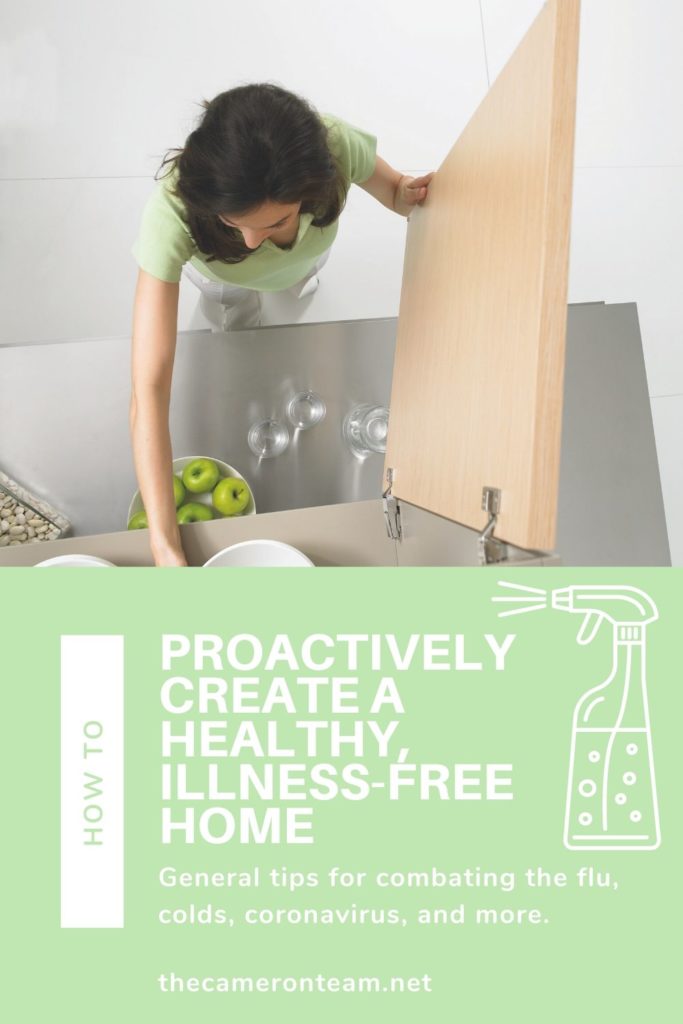The coronavirus (COVID-19) has put the world on high alert as reports of confirmed cases continue to pop up at alarming rates. While it’s unclear exactly how this virus will run its course, there are some actions homeowners can take to create an overall healthier home in defense of it and common illnesses, like the flu or cold.
1. Declutter
Keeping your home clean is an important part of preventing the spread of illnesses. However, if surfaces in high-traffic areas are cluttered, it can be difficult to do that quickly or efficiently. I don’t know about you, but mail, school papers, bags, and other things always manage to gravitate to the end of my dining room table (not the best idea to drop things from outside where you eat, right?). That type of contact is what we need to be cognizant of during times of illness. So, clean out those drop zones and make it a habit to discard of things you don’t really need.
2. Clean Up Every Day
Life gets busy and sometimes it feels easier to put off your messes until later; however, germs can live on surfaces for hours to days. The flu can last 15 minutes to 48 hours depending on the strain and type of surface. A cold virus can last for several days on a nonporous surface, though some experts claim it’s only infectious for 24 hours. SARS can also live several days and is highly infectious. Bacteria can live on a clean surface for 4 days and a dirty dish for several days thanks to the food particles. Right now, it’s unclear how long the coronavirus lives on surfaces, so it’s best to be proactive in washing hands and wiping down counters, doorknobs, cabinets, etc.
3. Clean with EPA Approved Products
The Center for Disease Control and Prevention (CDC) has listed guidelines on their website for how to clean porous and nonporous surfaces, including laundering fabrics at the warmest setting possible. Their guidelines include using products approved by the Environmental Protection Agency (EPA). The EPA created a list of products that have demonstrated the ability to kill viruses that are even “harder to kill” than COVID-19. Whichever product you choose to use, it’s important to follow the instructions on the label. A major factor in killing viruses is the length of time the product is in contact with the surface you’re trying to clean. If the surface dries too soon, not all of the germs will be eliminated.
4. Take off Your Shoes and Change Your Clothes
While the coronavirus is most easily spread via respiratory droplets picked up within 6 feet of an infected person, other illnesses can be captured and carried on clothing. Remove your shoes at the front door to keep them from spreading bacteria to the carpet. This is especially important if you have small children who play on the floor. You’ll also want to change your clothes once home. You never want to sleep in the clothing you’ve worn all day. This will transfer germs to your bedding, which you’ll then lie in for hours.
5. Wash Your Hands
While you can’t control which germs people bring into public places, you can control (to a certain degree) what is brought into your home. The single most important guideline provided by the CDC for combating coronavirus and other illnesses is to wash your hands. It prevents the spread of the virus and other germs on surfaces and lowers the chances of them entering your body. But you must do it correctly.
Scrub your hands, front and back, to the wrist with liquid hand soap for 20 seconds.
Not sure how long 20 seconds is? Sing along to Ed Sheeran’s “Thinking Out Loud.”
While any soap is better than none, germs can be left behind on bar soap and foaming is less effective than the stuff you lather yourself, so try to stick to good old liquid hand soap. It doesn’t matter if you use cool or hot water, just don’t skimp on time, because that is one of the biggest mistakes people make. Also, drying hands with a paper towel helps wipe off any germs left behind and prevents them from spreading to others, unlike fabric hand towels and blow dryers.
Whether you’re feeling anxious about the coronavirus or trying to keep your family healthy during cold and flu season, these preventative measures will lower your chances of becoming infected or passing germs on to others. Need more tips for keeping the Coronavirus at bay? Visit Protect Your Family on the CDC website.
[the_grid name=”Homeowner Tips”]





